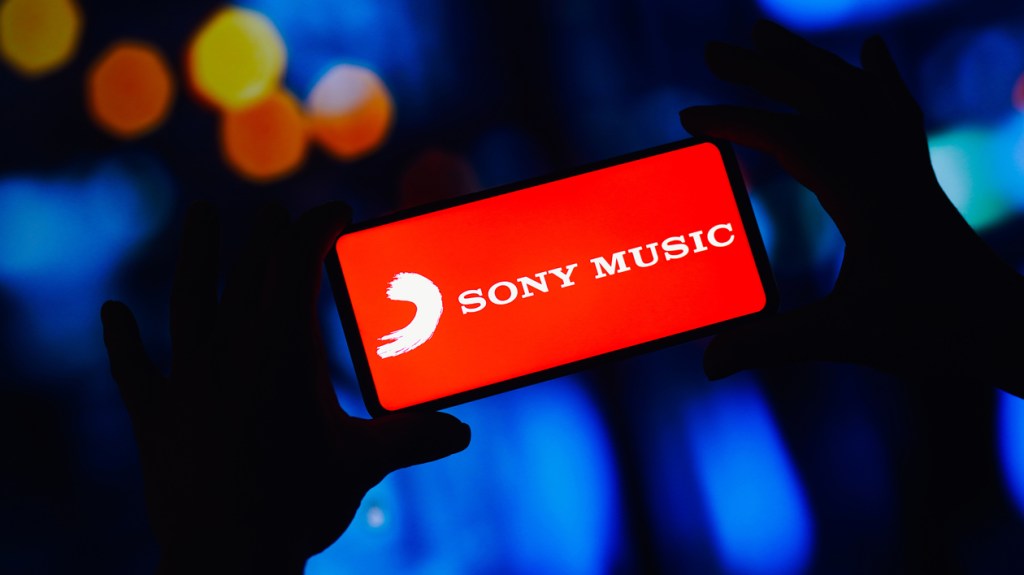Free music streaming shouldn't be so free, Rob StringerCEO of Sony Music Entertainment, suggested Wednesday during a presentation to analysts and investors of Sony Corp.
The value of the paid subscription “remains incredible,” Stringer said in prepared remarks during parent company Sony's 2024 Business Segment Meeting. But recent price increases — from Spotify, Apple Music, Amazon Music, YouTube and, more recently, Pandora — have widened what Stringer calls the “price gap” between free and paid streaming. Now, Sony wants streaming companies to get more from their free listeners.
“In mature markets, we hope our partners will bridge this gap by requiring consumers using ad-supported services to pay a small additional fee,” Stringer said. “This would help grow this part of the streaming business to be more than just a paid subscription marketing funnel and still be a huge value for users. We have a common interest in better monetization of free tiers. At Sony Music, we believe that everyone is willing to pay something for access to almost the entire universe of music.”
Free streaming provides an opportunity to attract paying subscribers, but it pays much less per listener than subscriptions. Even though Spotify has 62% more free listeners than subscribers, advertising accounted for just 10.7% of its first-quarter revenue compared to 89.3% from subscriptions. Another round of price hikes from Spotify this month in the UK and Australia foreshadows additional price hikes in the US and other major markets. Further increases in subscription prices will widen the gap between premium and free streaming, and “even if advertising becomes a better part of the story, it's still a relatively small part of our overall revenue mix,” Spotify CEO Daniel Ek he said during the April 23 earnings call.
Charging for ad-supported music would break with a long tradition of giving listeners a free on-demand streaming option. YouTube and Spotify are the two largest ad-supported on-demand platforms that stream music. Amazon Music has a free tier with limited functionality. In the US, Pandora has about 39 million monthly active users for its ad-supported internet radio service and has fewer interactive features than YouTube or Spotify. However, ad-supported paid streaming is common in the video world. Video-on-demand services like Hulu and Netflix offer low prices with ads and charge higher prices to eliminate advertising altogether.
Sony Music also wants to capture more revenue from short-form video platforms like TikTok that attract huge audiences but provide relatively few royalties. “Top-quality artistry drives the appeal of these services, with music central to about 70 percent of the videos created on them,” Stringer said. “These companies are playing an increasingly important role in music discovery and engagement among young listeners. Increasingly, these are primary sources of consumption and must be valued accordingly.”
Stringer, who does not comment during the parent company's quarterly earnings calls, spoke and answered questions for 40 minutes about Sony Music's artists, chart successes, growth opportunities and efforts in emerging markets . After highlighting Sony Music's efforts in Latin America, India and China, he focused on the newest — and most disruptive — technology on the music industry's horizon. Artificial intelligence, he said, “represents a turning point for music” and Sony Music will take an “active role” in creating a “sustainable business model” that respects the company's rights.
But Stringer was clear that Sony Music is taking a hard line in the battle to shape AI in music. “We will not tolerate the illegal training of artificial intelligence models with reckless and unlicensed abuse of this art,” he warned. “We strongly believe that permission is the only way AI models can be trained with our content and we are following the protocols of the EU AI Act by sending over 700 letters to AI developers to opt out of our copyright from education”. Sony Music has also issued “over 20,000 AI-generated audio takedowns in the past year,” he added, while working with lawmakers around the world “to shape policy and rights” on AI issues.
“With the right frameworks, innovation will thrive, technology, music will benefit and consumers will enjoy your experiences,” Stringer said. “We've thrived from disruptive market changes in the past, so we're confident we can successfully navigate this chapter.”



